On behalf of the Organising Committee, I am excited to invite you to attend the 54th Australian Foundry Institute (AFI) National Conference to be held in Sydney from 17th to 19th October, 2019.
This year’s Annual Conference is hosted by AFI NSW Division in the historic City of Parramatta, home of Australia’s oldest public building and many heritage sites going back to early European settlement. In fact World Heritage Listed, Old Government House where we will be holding our President’s Reception, was built over the period 1799-1820 and was the preferred home of our early Colonial Governors. Our Conference Dinner will be held aboard a Captain Cook Cruise Boat on Sydney Harbour.
As with past AFI National Conferences, we have endeavoured to put together an interesting and industry specific array of speakers aimed at motivating and educating our members from Shop Floor Foundry Operators, Managers and Business Owners and Suppliers to our metal casting industry. We already have commitments from several international keynote speakers and presentations by industry specialists lined up. Our social program will be enjoyable and blend well with the serious side of the conference. Do bring your partners as there will be great options for interesting group activities or to simply enjoy the myriad of possibilities to explore what is the epicentre of Sydney.
These are challenging times for all manufacturers none the least of which are our own energy hungry operations. Some of our speakers will cover process developments for foundry operations, product trends and local and international market shifts and opportunities to embrace emerging casting technologies. Managers and Business Owners will hear of business support programs including new apprenticeship training schemes; energy cost subsidies; computer software developments; Entrepreneurs’ Programme for Advanced Manufacturing and a “State of the Nation” review of our foundry industry as it stands in 2019 as gleaned from the foundry survey currently being collated by our AFI National President.
All in all, this program will have topics that you simply cannot afford to miss as collectively we work to “Casting a Solid Future” for our Companies, our Employees, Shareholders and of course our Nation. We really want to have a high percentage roll-up so please register as soon as you can, encourage your key workers and managers to attend and for those that are able, please offer your support by committing to sponsorship of one or more of the available options.
This is an investment opportunity for our future.
Hoping to see you in Parramatta.
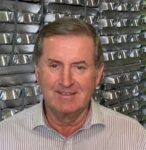
Yours Sincerely
Keiran Slattery
AFI NSW President
You’re invited
The conference Organising Committee is pleased to invite your organisation to participate at AFI 2019 as a sponsor. Sponsorship is an opportunity to demonstrate support for the event, to increase your customer contact and awareness and pursue business opportunities across the industry.
Opportunities
A variety of sponsorship levels to suit your business goals are available for purchase and include various degrees of entitlements. Please download the Sponsorship Prospectus below to view all opportunities.
Click here to download the Sponsorship Prospectus.
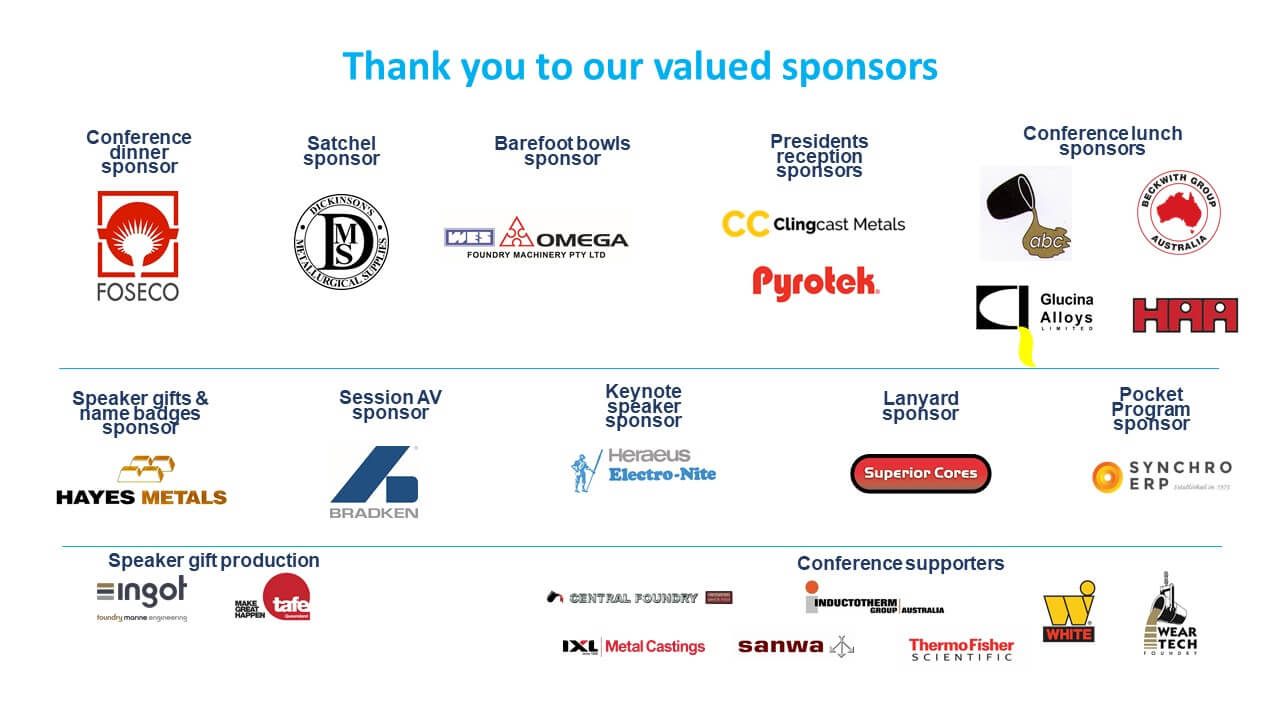
 AFI 2019 National Conference Committee
AFI 2019 National Conference Committee
- Keiran Slattery
- Glen Thiele
- Brendon Davies
- Kevin Morphett
- Stuart Ward
- Mick Nolan
For more information about the Australian Foundry Institute please visit: https://www.australianfoundryinstitute.com.au/
 View the program outline here.
View the program outline here.
All presentations remain the copyright of the contributing authors.
Conference Speakers
General information
Climate
Sydney is a temperate and sunny city all year round. September sees the beginning of Spring, bringing warmer weather with average temperatures ranging between 16 and 20 degrees during the day.
Disability access
If you require disability-specific facilities, please notify the secretariat by indicating this on your registration form.
Dress
A smart casual / business attire dress code applies for all conference sessions. Lounge suit / cocktail dress for the conference dinner is requested.
Insurance
It is strongly recommended that delegates take out adequate medical, travel and personal insurance before travelling.
Liability disclaimer
In the event of industrial disruption or other unforeseen circumstances, the meeting organisers accept no responsibility for loss of monies incurred by delegates.
Name badges
The wearing of identification badges is mandatory and will be required for admission to all sessions. These will be provided at the meeting registration desk upon your arrival.
No smoking policy
Delegates should be aware that smoking is not allowed in the conference venue.
2019 Registration fees
Registration for AFI 2019 has now closed.
Registration fees are based on the date of receipt of payment (not the registration date). All prices are in Australian dollars and include 10% Australian Goods and Services Tax (GST).
| Registration type | Early bird (up to Mon 16 Sept) |
Standard (from Tues 17 Sept) |
| Full registration | $650 | $750 |
| Day registration | $400 | $400 |
Full registration fees include:
- Attendance at all sessions
- (1) President’s reception ticket for Friday 18 October
- (1) Conference dinner ticket for the Harbour Cruise on Saturday 19 October
- All morning teas, afternoon teas and lunches
Day registration fees include:
- Attendance at all sessions on the nominated day
- (1) President’s reception ticket for Friday 18 October (please indicate if you will not be attending)
- Morning tea, afternoon tea and lunch on the nominated day
The following items are at an additional cost and not included in the registration fee:
- Accommodation
- Flights and travel expenses
- Barefoot bowls tickets
- Sightseeing
Register online
When you register online, you will receive confirmation of your registration straight away via email. If you do not receive this email, please contact Expert Events at afi2019@expertevents.com.au or phone +61 7 3848 2100.
You can pay your registration fees online using MasterCard or Visa, or select the option to pay via EFT. A tax invoice will be emailed to the address you supply once you’ve submitted your details and confirmed your method of payment.
Payment may be made by:
*Credit card – MasterCard or Visa
Note that payments will appear as Expert Events on your credit card statement.
*Electronic Funds Transfer
Account name: AFI NEW SOUTH WALES
BSB: 034 041
Account number: 375955
Remittance advice must be sent to afi2019@expertevents.com.au
Cancellations and refund policy
Cancellations must be advised in writing to the secretariat. Registration cancellations received by Thursday 19 September 2019 will receive a refund of registration fees, less an administrative charge of $110. Refunds for cancellations received after Thursday 19 September 2019 will be at the discretion of the meeting committee. Eligible refunds will be issued after the conclusion of the meeting. Registrations are transferable to a colleague at any time prior to the event provided the AFI 2019 conference secretariat is advised in writing.
Accommodation
Due to the Edinburgh Military Tattoo performing at Sydney Olympic Park, accommodation in the Parramatta area has reached a premium. As we have sold out of our contracted allotment of rooms and the PARKROYAL will not allow us to add any more to our inventory, we recommend you contact the venue directly if you would like to secure a room at the conference venue. Please also be aware that the room rate may be significantly increased from our contracted rate below.
We apologise for any inconvenience.
Accommodation will be allocated in order of receipt of bookings and is subject to availability. To secure the conference accommodation rates, bookings should be made online as part of the registration process.
Cancellations and changes to your accommodation booking
Please notify your request for changes or cancellation directly to the conference secretariat. Please ensure you understand the cancellation policy for the hotel you are booking.
Arrival time
Upon booking accommodation, please indicate your estimated time of hotel arrival. If you wish to check-in before the official hotel check-in time, it is recommended that you book and pay for the room for the evening prior to your arrival. Failure to advise your arrival time if arriving after 18:00 may mean that your room will be released and you will be charged a no-show fee.
Extending your stay
If you wish to extend your stay prior to or following the conference, please specify your requirements in the ‘special instructions’ field during the accommodation booking process. Availability and rates will be checked with the hotel before your reservation is fully confirmed.
Payment for accommodation
Please note that payment of accommodation is NOT taken at the time of completing an online registration, however a valid credit card is required at the time of booking to guarantee your room with the hotel. A wider range of credit cards are available for accommodation payment (including Diners and American Express). The hotel will charge a deposit equivalent to one night to the credit card on file, 30 days prior to your arrival and then take full payment at 14 days prior to arrrival. If your card is declined, you will be contacted to provide a valid credit card. Failure to provide a valid credit card will result in your room being released.
If you wish to settle your account with a credit card of which you are not the signatory, you must provide written authority to the hotel to do so. A third party authority form will be emailed to you approximately four weeks prior to the meeting.
| Hotel | Room type | Bedding configuration | Room rate (per night) |
Buffet breakfast rate (per day) |
| PARKROYAL Parramatta | Superior room | King or twin beds | AUD210 includes 1 dailybreakfast | AUD20/person |
PARKROYAL Parramatta
30 Phillip Street, Parramatta
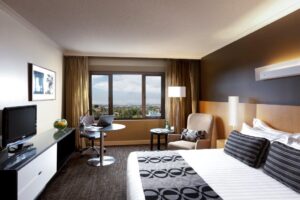
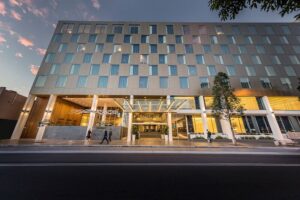
PARKROYAL Parramatta is primely positioned in one of the most historical and culturally diverse regions of Sydney. The venue is a short stroll from vibrant dining, entertainment and shopping destinations and the Parramatta River. Boasting stylish and modern meeting rooms, sought after dining areas and luxurious accommodation that promises an overall personalised experience for every guest, the PARKROYAL Parramatta guarantees the perfect conference experience.
Room type: Superior room
Superior rooms are spacious and contempory in design and feature one king bed or twin beds, a spacious work area, flat screen TV and high-speed broadband internet.
Check-in/ check-out: Check-in is available from 2:00pm. Check-out is prior to 11:00am.
Car parking: Self-parking is available for guests at $20 per car per day.
Internet: Complimentary Wi-Fi.
Payment: A deposit of one night will be charged to your credit card 30 days prior to arrival. Your remaining account will be charged to your credit card 14 days prior to arrival. All incidental charges incurred during your stay must be settled on check-out.
Credit card service fee: A credit card fee of 1.1% (including GST) applies to all payments made with a Visa/MasterCard, and 3% for Diners/Amex.
Cancellation policy:
Any cancellation fee will automatically be charged to the credit card provided for room guarantee.
30-15 days prior to arrival: a one night cancellation fee will apply.
14 days prior to arrival: a 100% cancellation fee will apply.


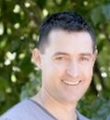
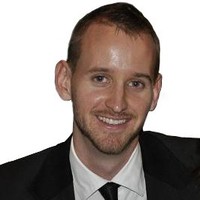
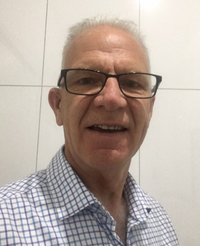
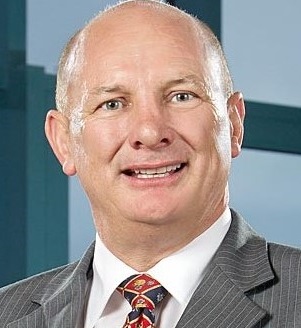
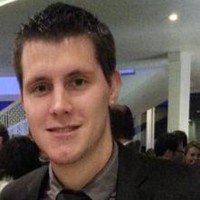
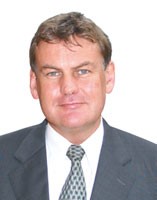

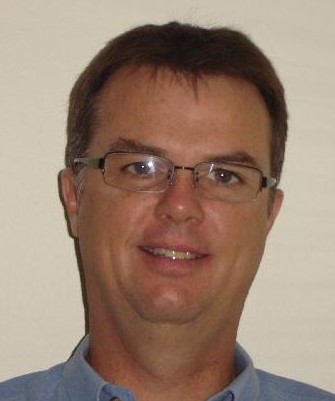
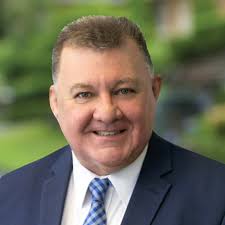
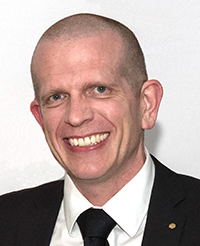
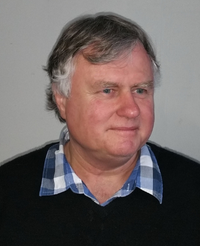
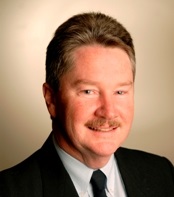
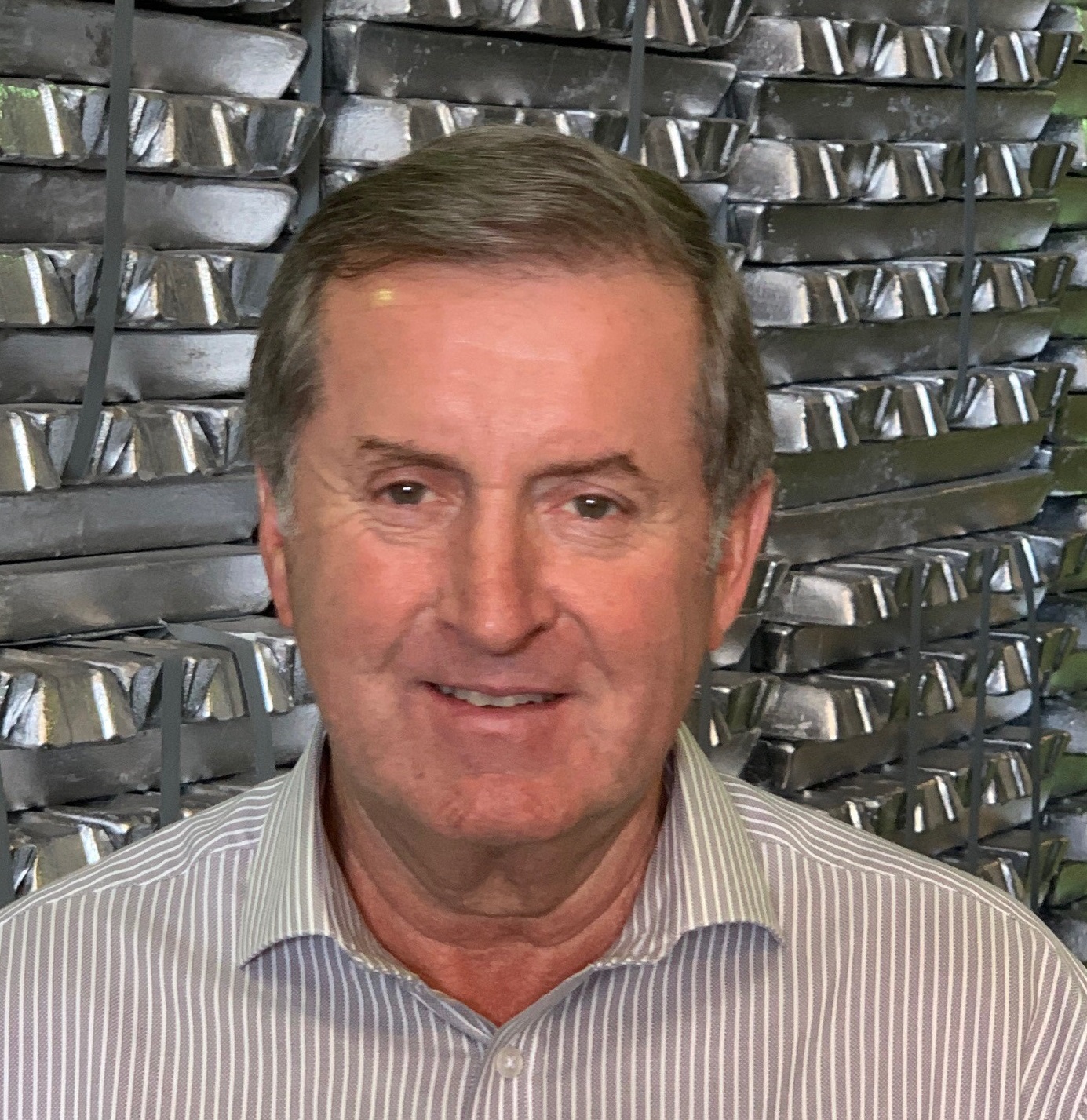
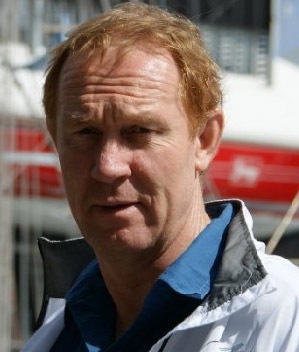
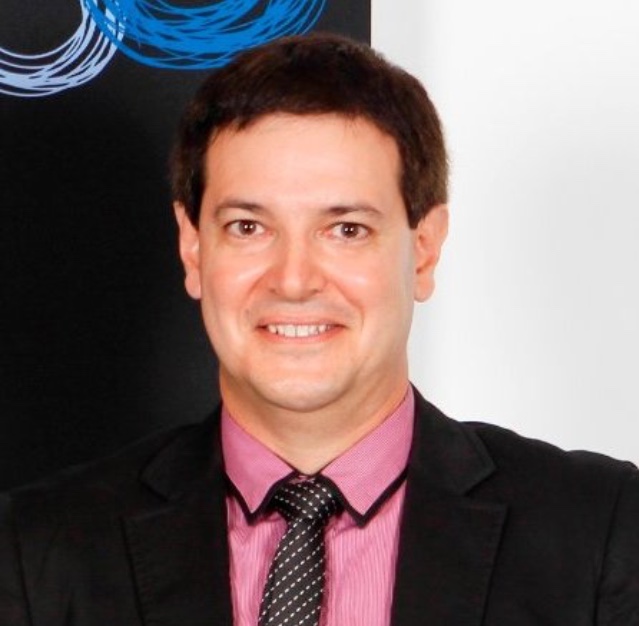

AFI 2019 social events
The conference Organising Committee would like to invite you to participate in numerous social events that have been arranged and will run throughout the duration of the conference. Partners are most welcome and we encourage you to purchase your tickets as soon as possible.
Barefoot Bowls – Thursday 17 October
Rosehill Bowls Club
President’s Reception – Friday 18 October
Lachlan’s Old Government House
Conference Dinner – Saturday 19 October
On board the Captain Cook 3 (Captain Cook Cruises)
Partner Tours
These tours are subject to interest and limited in numbers. You can select either or both during the registration process. More details will be provided closer to the event.
PLEASE choose carefully. The purchase price of these tours is NON-refundable.
Tour 1. Friday 18 October – $99 per person. 3.5 hours duration. 11:00am to 2:30pm
Taste of Afghanistan, Syria and Persia – Merrylands
Due to unfortunate circumstances the Historic Dairy Cottage Tour has been cancelled. We apologise for any inconveninence